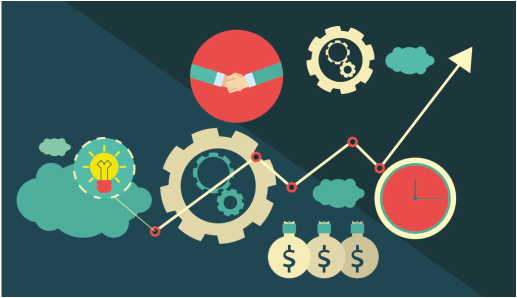|
The most common financial method to determine the value of a business is to apply an earnings multiple. But it’s only the beginning. It’ll help you identify a ballpark value for your business, but it’s nowhere near complete.
And applying an earnings multiple isn’t straightforward in itself. You’ll still need to decide on the appropriate multiplier. Your industry will determine a range, but whether you sit at the top or the bottom of that range depends on the action you take. 1) Industry Your industry definitely has a bearing on the value of your business. If you’re in a highly innovative, growth market like cloud-based software, your market value is going to be greater than if you’re a bricks-and-mortar bookstore without a digital presence. Your current customers, potential future growth, market reach and position in the business cycle are all important. Even if the potential of your business itself isn’t worth extra dollars, the future potential within your industry does add appeal and may offer value in dollar terms today. But if we ignore your industry and simply look at how your business can outperform its peers, here’s what you’ll need to consider… 2) Innovation or Technical Capacity If you’re an innovator in your field or you offer a product that is difficult to replicate, your business will be more valuable. So if your product requires technical capacity to develop, market or deliver, you’re ahead of the game. It’s tricky for someone to compete. And when they do, you’ve already moved on. The only thing you’ll need to keep on top of is your team. If you’re business is tricky to imitate, it may be tricky to run. A low tech investor can be intimidated by a high tech purchase, unless operations run like clockwork and the breadth of knowledge is shared throughout the team (and doesn’t only sit with you). But if your business is low tech, that’s ok too. You just need to be a step ahead. Or offer something a little different. It may be the way you package, promote, the level of service you offer, your supply chain, or customer relationships. But if you’re a stand out, even in a low-tech environment, a point-of-difference is a desirable and valuable asset for potential investors. 3) Thinking Big If you’re a well documented, process oriented and streamlined business, you’re valuable. Even if you’re small, think big… and act now like the organisation you want to be in 5-10 years. It doesn’t matter if you have a handful of employees or a heap of them. If your operational processes are complete, you can easily measure and monitor performance using financial and non financial measures and you regularly review and report on your progress towards your business goals, you’ll have a business that is easier to run and an appealing asset for any buyer. There’s nothing to figure out. You’ve done all the hard work, so your financial predictions will also hold more weight. Systemise everything that is done more than once. Think McDonalds. I’m sure you’ll agree they’re a successful operating model, but equally certain they’re not the best burgers you’ve ever tasted! 4) Reliable Revenue If you have a reliable revenue stream, you’re valuable. Think of the equipment manufacturer that offers servicing… or consumable accessories. This is a desirable revenue stream for investors. It’s the cream… and way more certain than a projection of future equipment sales. Think about what else you can offer your clients… on a regular basis. 5) Focus Who are you and what do you stand for? A clear brand identity and marketing strategy is essential. It links with thinking big. Successful businesses are extremely particular about their brands. They’re consistent. They’re unique. They understand their target market. They’re passionate. Be all that and more. No doubt you’ve heard the saying that ‘perception is everything’. It’s certainly true in business. 6) Team Don’t retain all the knowledge. This is a common pitfall for small to medium business owners. They think they’re the best person for the job, so do them all. Give your team the responsibility to achieve great results. It’s a bit like your kids. You may be surprised with what they are capable of if you give them a little responsibility. You’ll still need to provide training and support. And if they don’t perform, replace them. It’s that simple. The most valuable resource in your business needs to be focused on the biggest opportunities. If that’s you, it means you can’t be focused on the small stuff. Delegate, measure and adjust. Your people are a tangible asset to the business. Especially when you plan to exit. Would it help to have someone support you in developing these areas of your business? Then get in touch. I’m able to help you at any stage of business ownership, but the sooner we get started, the sooner you’ll start reaping the rewards.
0 Comments
Leave a Reply. |
Join up to receive David's tips for business leaders direct to your inbox. You can always unsubscribe with one click. And we'll never share your details with others... ever.
AuthorBetter Business Today was created to help business leaders navigate their market place and improve business performance (or the lifestyle it offers), without the guesswork. Simple steps, actionable advice and fast results. Archives
February 2017
Categories |
|



